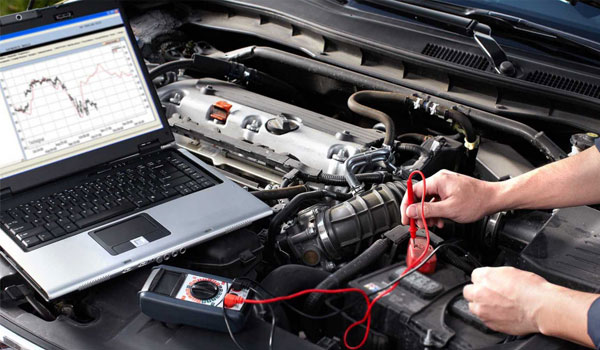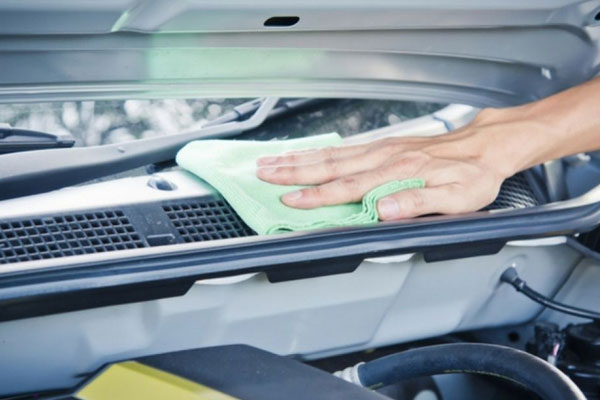Automobiles are one of the most significant investments one can make. As a result, it makes sense to make it endure as long as feasible.
If certain guidelines are properly followed, extending the life of a car is simple.
In this article, we’ll go over some tips for extending the life of your vehicle.
Use Genuine Spare Parts
One strategy to extend the life of your car is to always use original spare parts. Genuine spare parts ensure your vehicle’s reliability and longevity.
Every driver or car owner must remember that genuine parts are required for a vehicle to function properly and endure longer.
So, the next time you go to buy a car part, make sure it is original.
Change filters regularly
Your car’s oil filter and air filter become clogged with time and with frequent use. This is why it’s critical to change the filters on a regular basis.
Filters should be replaced as part of your car’s routine maintenance or oil change. Replace air filters at least once every six months.
Avoid Roads With Potholes
Potholes can cause harm to your vehicle. When you drive into a pothole, the impact on your vehicle’s suspension system can be damaging.
The cumulative effect of regularly driving over them can cause damage to your vehicle’s wheel alignment, tyres, and other components.
Your vehicle might be damaged whether you strike a pothole head-on or respond in time to partially avoid one.
Replace spark plugs
Spark plug replacement is something you should do on a frequent basis. This is important in order to improve the performance of your car’s engine.
Spark plug replacement is another simple job that you can do yourself, but if you’re not comfortable with it, get it done by a professional during service.
A worn spark plug shows that it needs to be replaced, or it can provide you an indication about the state of your engine.
There are signals to look for when evaluating a spark plug to determine if it is still in good working order. Check to see if it has a light brown electrode and insulator, for example. Also, make sure there aren’t any signs of melting, wear, or deposits.
Carry Out Regular maintenance
It is critical to service your car on a regular basis in order to keep it in good working order and extend its life. The most effective strategy to keep your vehicle in good shape has always been to do routine maintenance.
Regular checkups allow you to detect problems early on, when they are still minor and relatively easy to remedy. The length of the service should be determined by the amount of time or miles driven. For example, you may service your car every three months or 10,000 miles. Many modern cars include dashboard warning lights that illuminate when maintenance is required.
Park in the shade
The best place to park your car is in a garage. If one is not accessible, always park your car in the shade to avoid any damage to the interior of the car from UV rays and heat. Your car will stay dry, clean, and safe if you park it in a garage. It also reduces the chances of vandalism, theft, and accidental damage. If you don’t have access to a garage, you might want to consider investing in a car shade or a high-quality car cover instead. Covering your automobile is essential, especially if you leave it parked for extended periods of time.
Don’t Drive Your Car With Little Fuel
Driving a car with a low fuel tank might result in major and costly problems with the fuel system. Allowing your vehicle’s fuel to run out is a bad idea.
This will prevent the fuel pump from sucking in dirt. This will protect the carburettor and injector from damage. If you drive with a low tank, your fuel pump also contains a fuel filter, which can quickly become dirty. So, generally speaking, disregarding your car’s low fuel signal is a terrible idea.
Maintain your car’s battery
When you don’t use your car for a long time, the battery will degrade and eventually die. Then jump-starting your vehicle would be required.
Jump-starting the car, on the other hand, puts additional strain on the battery. It also has the potential to harm the engine management system and other sensitive components. When your car is parked for an extended period of time, consider using a trickle charger to keep the battery charged. Otherwise, aim to get behind the wheel at least once a week.
Avoid Carrying Heavy Loads
Carry as few heavy objects as possible in your car. Carrying a hefty load in your automobile will significantly reduce your vehicle’s fuel economy.
Carrying a high weight puts extra strain on wear-and-tear components like tyres, brakes, and suspension bushes. Remove whatever you don’t need from your car’s boot.
In case of an emergency, remember to bring the toolbox, jack, and locking wheel nut key.
Use your air conditioning Regularly
You should always use your car’s air conditioning on a frequent basis. If you don’t use your car’s air conditioning system on a regular basis, you run the risk of it leaking refrigerant gas over time. While not using your car’s air conditioning may save you money in the short term, you may end up spending more in the long run on gas.
Check your tyres
Tyres are unquestionably critical to the safety of a moving vehicle. This is why it is critical to inspect them on a frequent basis. Performing a tyre inspection at least once a week may save your life. It may also help you save money. Under-inflated tyres, for example, will increase fuel consumption. A tyre that is under-inflated will require more energy to roll, which implies more fuel. At least once a week, check the pressure in your tyres. As a result, it’s critical to maintain them filled up to the required pressures indicated in your car’s owner’s manual. It is also critical that you have your vehicle aligned. This is necessary to prolong the life of the tyres and protect the car from shaking while traveling at high speeds. Having your car’s wheels aligned professionally can help you save money on tyres while also improving steering response and handling.
Check The Level Of Your Car Fluids Regularly
Make sure to replenish your fluids on a regular basis. Check the level of brake and gearbox fluid, for example, every morning. Also, change your car’s engine oil at least once every 3–6 months to assist extend the life of your vehicle. Open the bonnet and remove the dipstick once every two weeks to check your engine oil.
Car fluids are critical to your vehicle’s health. As a result, failing to replenish them can cause serious damage to your vehicle. The coolant reservoir is another fluid that should be checked on a regular basis. Also, keep an eye on the amount of the engine radiator coolant; flushing or changing your radiator coolant once or twice a year is recommended.

 News6 days ago
News6 days ago
 News5 days ago
News5 days ago
 News1 week ago
News1 week ago
 Celebrities Auto5 days ago
Celebrities Auto5 days ago
 News3 days ago
News3 days ago
 News1 week ago
News1 week ago
 Concept Cars5 days ago
Concept Cars5 days ago
 News3 days ago
News3 days ago

